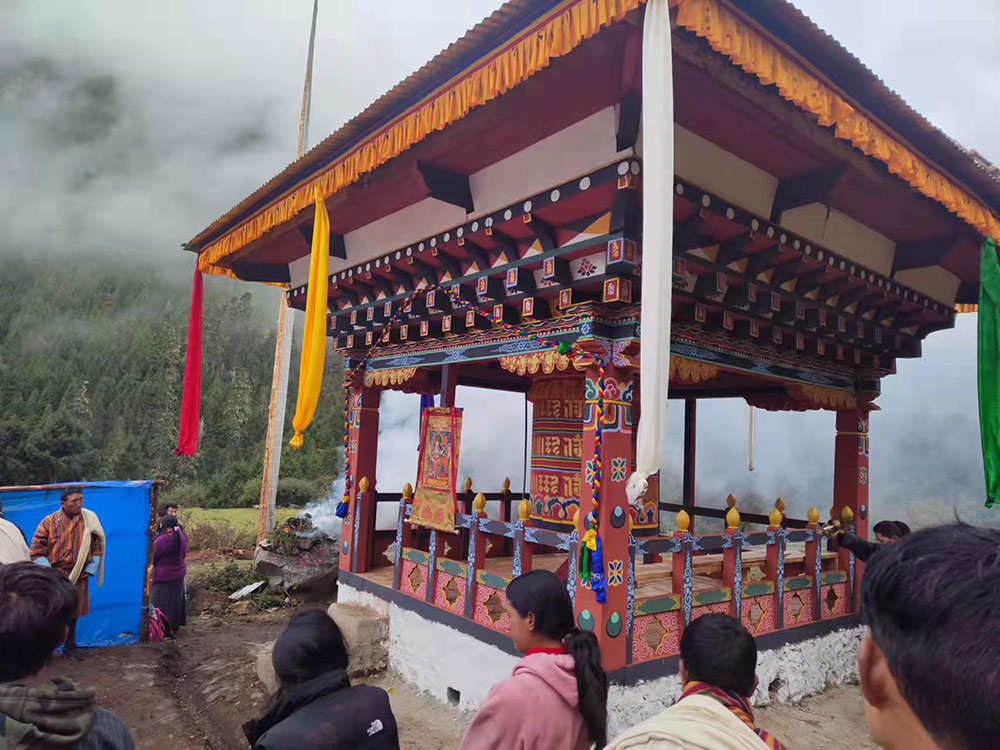Phurpa Lhamo | Gasa
In memory of the 10 people who lost their lives in a landslide in June, members of the bereaved family members and friends have built a Mani Dungkhor (prayer wheel) at Tasimakhang, Laya.
The prayer wheel may be a sad reminder of the tragic accident, but it is an important part of the many rituals the bereaved family members have conducted so far. More than Nu 400,000 was spent on the Mani Dungkhor, with family members contributing cash.
It is believed that turning a prayer wheel built in memory of the deceased will help them after their death and all other sentient beings. Layaps are religious and superstitious, like many other Bhutanese. They believe the prayer wheel will also help avert future misfortunes.
It has been more than three months since the unfortunate accident at Ri Druzhi, the base camp where the 10 highlanders were buried under the slide. Members of the aggrieved families are coming to terms with life after the incident.
However, they are still wondering how the unexpected landslide happened. Some are superstitiously wondering if it was of their own making.
The accident happened a few hours after a group of men returned to the camp after collecting cordyceps. According to a woman, who witnessed the incident, the accident happened after the men disturbed a sacred lake in the vicinity. She said that the men, most of whom died in the accident, were seen tossing stones in a lake located more than an hour away from where the tents were pitched.
“Women who witnessed the incident advised the group to avoid shouting near the lake,” she said.
There are numerous lakes around Ri Druzhi.
Prior to the accident, men returning from the higher mountains, around 4pm, were seen shouting near a large lake. Many believe that disturbing lakes can bring misfortune, often in the form of overflowing lakes causing flash floods. There were also allegations that some were smoking and drinking near the lake.
On the lakes and superstitions surrounding it, Khenpo Nima Shar of Dorden Tashithang Buddhist University, said that while some lakes were formed by the natural collection of water, some lakes held the existence of lathso. “For example, if it is a Gyenyen (deity) latsho it means that the lake might have a nyekhang, or it might be under the care of Gyenyen.”
He added that the harm done to the latsho would also cause damage to the custodial deity and damage incurred on any latsho could then bring disaster to the ones who had caused the damage.
“Even in the Gyesar epic poem, there are many reflections on how important it is and how the lakes should be taken care of.”
In general belief, people across Bhutan believe that people will feel the wrath of disturbing sacred lakes.
Laypas deny disturbing the lakes. A survivor of the accident said that highlanders often camp near the lake and even wash their clothes in the lake. “We have never had an issue in the past,” he said. Another said the men didn’t toss rocks into the lake.


